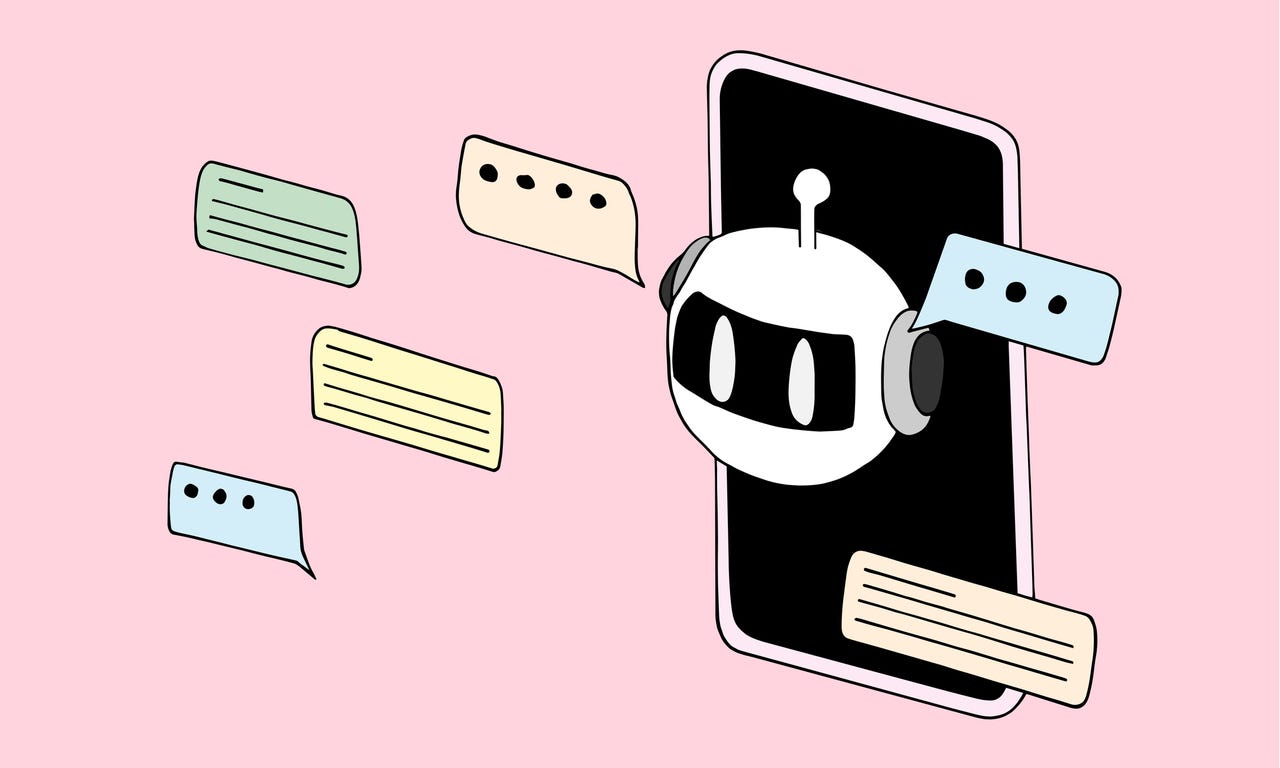
Botpress is a tool for building interactive chatbots. While it supports building chatbots for a wide range of applications, the killer app is using it to build a customer support chatbot and backing it up with AI smarts.
Also: These are my 5 favorite AI tools for work
At its core, Botpress is a drag-and-drop interaction builder. You bring cards out onto the workspace, assign inputs, outputs, and calculations to the cards, and then connect one card to the next until a complete interaction has been mapped out.
On the surface, bot building is fairly straightforward. You can build question cards and, based on the answers provided by users, transfer the interaction to another card which will either ask more questions or provide answers. Rinse. Wash. Repeat.
Where this product stands out in the AI arena is that you can feed it knowledge sources ranging from a set of documents to a specific webpage, to searching on a specific website, to searching for answers across the web. AI analysis is powered by the ChatGPT API.
Botpress also enables you to use some natural language queries to set up expressions that are later used in the management of the user path. Unfortunately, Botpress also requires you to use some arcane expressions you either have to memorize or look up on Pastebin to build fully functional chatbots.
That said, I built a super-simple chatbot that queries ZDNET for an answer.
I'm sorry, Dave. I'm afraid I can't do that.
You can use Botpress for free, but if you exceed 1,000 interactions, you'll be required to pay. An interaction is any question, query, or unit of work. For testing, the free plan is fine. But once you let the chatbot loose on the world, you're paying for it.
Once you create an account, you are given the option to create a chatbot.
I decided to use the wizard and have my chatbot answer questions from a website.
I told it I wanted it to search ZDNET for answers.
Also: How does ChatGPT actually work?
After a while, Botpress generated this simple map, which allows for a question to be answered and a fallback. Fallback is an interesting feature. You can configure Botpress to use a knowledgebase, but if that knowledgebase doesn't have an answer, the flow can fall back to another knowledgebase. You can even set it to fall back to a ChatGPT prompt accessing the entire ChatGPT knowledgebase.
Here's what I got back:
I asked ZDNET's Ed Bott to check on the bot. (I know, the Bott/bot thing probably amuses me and you a lot more than it does Ed.) In any case, here's Ed's answer in terms of bot response quality:
Netplwiz has been a part of Windows since forever. As far as I know this does not work with Windows 11 anymore.
I asked ChatGPT the same question and restricted it from using the web for input. It gave me the same answer as supposedly came from ZDNET:
I then asked the wizard-generated ZDNET bot a few more questions that can definitely be answered from articles I've written, but are most likely not in the ChatGPT knowledgebase. They failed, too:
So the wizard was bust. Either it just didn't work or I did something wrong.
Also: How to use ChatGPT to write code
Fortunately, doing it the harder way and typing in various little blocks of pre-canned code did work. While I didn't have the time to try to build a full ZDNET chatbot (and wouldn't want to, because I'd prefer you read the articles we write for you), I was able to prove that Botpress can get domain-specific knowledge from a specific site:
Lots of applications
While there wasn't time on this project for me to learn the entire Botpress development environment and process, it's very intriguing. Just within the customer support realm, there are tons of applications. Botpress interconnects with Zapier, and through Zapier to hundreds of web services. That means you could build customer support flows that actually look up order information and can provide real, targeted help to individual users.
Also: How AI helped get my music on all the major streaming services
With the addition of ChatGPT's API processing localized web searches, the opportunity to build helper chatbots that scan your existing site and existing knowledge (including manuals, for example) shows the potential for customer service and tech support bots that can actually provide real customer service and tech support, 24/7/365.
That's not to say I advocate dumping your human workforce in favor of an AI bot license. (I don't!) But I think you might be able to use Botpress to augment your customer service, perhaps provide a level 1 tier for incoming requests, and even provide support for your less experienced agents, where they might query the bot to provide answers back to users.
The company also has a Github archive where they share client integrations, so you don't need to start from scratch. You can host Botpress in the cloud, or on-premises.
Also: We're not ready for the impact of generative AI on elections
What do you think? Will you build a Botpress customer service bot? Personally, from the time I've had with it, I think it would be a lot of fun. It seems to offer a lot of power once you move past the somewhat mediocre wizard interface and dig into the true potential of the overall system.
You can follow my day-to-day project updates on social media. Be sure to subscribe to my weekly update newsletter on Substack, and follow me on Twitter at @DavidGewirtz, on Facebook at Facebook.com/DavidGewirtz, on Instagram at Instagram.com/DavidGewirtz, and on YouTube at YouTube.com/DavidGewirtzTV.